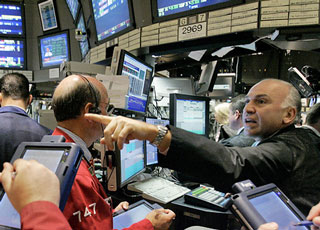
By The Independent Reporter
Commodity prices expected to tumble in 2009
The global financial crisis that started to show its effects in the middle of 2007 exploded in 2008.
Around the world, stock share prices tumbled, financial institutions previously considered impregnable collapsed or were bought out, and governments even in the wealthiest nations have had to come up with rescue packages to bail out their financial systems.
The extent of the problems has been worsened because with an increasingly inter connected world, shake-ups like a credit crunch can ripple through the entire global economy.
Many industrialized nations are sliding into recession if they are not already there. For the developing world, the rise in food prices as well as the knock on effects from the financial instability and uncertainty in the industrialised nations is having a compounding effect.
High fuel costs, soaring commodity prices together with fears of a global recession are worrying manydeveloping country analysts. The UN Conference on Trade and Development (UNCTAD) says uncertainty and instability in international financial, currency and commodity markets, coupled with doubts about the direction of monetary policy in some major developed countries, are contributing to a gloomy outlook for the world economy and could present considerable risks for the developing world.
Commodity dependent economies like Uganda are exposed to considerable external shocks stemming from price booms and busts in international commodity markets. African countries could face increased pressure for debt repayment. However, as the crisis gets deeper and the international institutions and western banks that have lent money to Africa need to shore up their reserves more, one way could be to demand debt repayment.
This could cause further cuts in social services such as health and education, which have been reduced due to other crises. In recent years, there has been more interest in Africa from Asian countries such as China. As the financial crisis is hitting the Western nations the hardest, Africa could yet enjoy increased trade with Asia for a while.
 The Independent Uganda: You get the Truth we Pay the Price
The Independent Uganda: You get the Truth we Pay the Price





